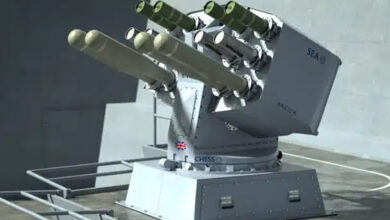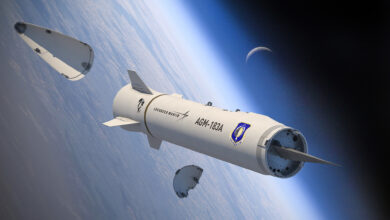Japan Funds Indigenous Ship-Killing Missile Project
Japan has awarded Kawasaki Heavy Industries 33.9 billion yen ($243 million) to research anti-ship missile technology.
The contract is part of four stand-off defense capability projects Tokyo awarded earlier this month for 314.7 billion yen ($2.3 billion). It will run from 2023 to 2027.
Kawasaki Missile Development
No official details have been shared about the potential missile. However, Kawasaki recently unveiled the concept model of an anti-ship missile in development for five years.
“The ‘island defense anti-ship missile’ is in its research and development stage,” Global Business Press quoted Kawasaki section manager Satoshi Hamada as saying.
“We have proposed the concept to the Ministry of Defence, and there is a good response to it. We will start the next stage of production once we get the go-ahead from the government.”
Expected Missile Features
The subsonic cruise missile has large wings and four tail fins and uses composite materials for stealth features.
The missile will be powered by Kawasaki’s newly-developed KJ300 twin-spool turbofan engine and is expected to have a range of 1,000 kilometers (621 miles).
“In the first stage, it is designed as a surface-launched missile, but if the need arises we may have ship-launched and air-launched derivatives,” Hamada added.
The award comes as the country has been looking to upgrade its Type 12 surface-to-ship missile.
The country also plans to purchase Tomahawk cruise missiles from the US to bolster its ship-killing capabilities.
Other Missile Projects
The three remaining contracts for Japan’s four stand-off defense capability projects have been awarded to Mitsubishi Heavy Industries. They include hypersonic guided missile research, high-speed glide missile development, and target observation bullet development.
The hypersonic guided missile research is scheduled to begin this year and run through 2031, while the high-speed glide missile development is expected to run from 2023 to 2030.
The target observation bullet contract is expected to run from 2023 to 2026.











